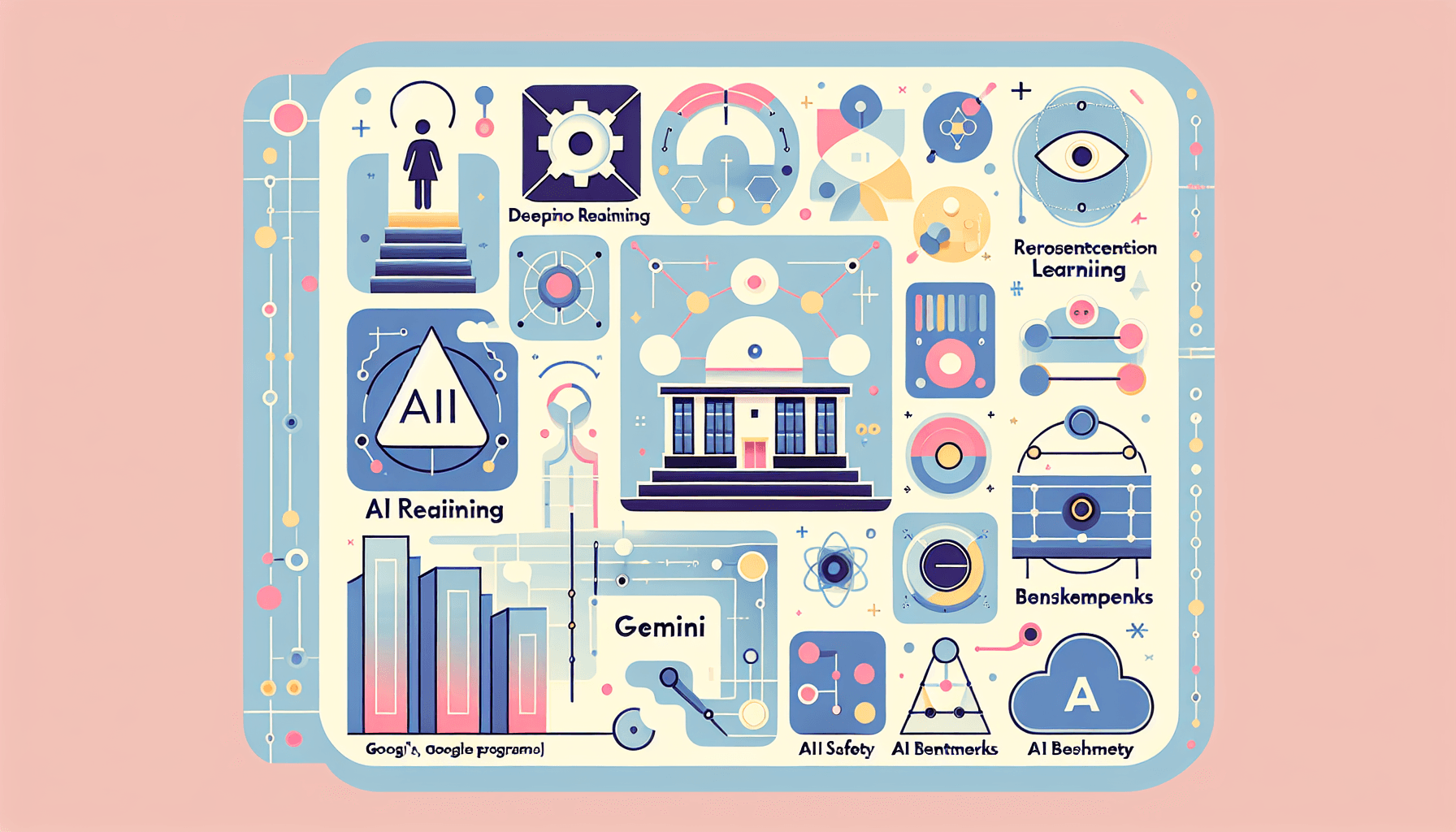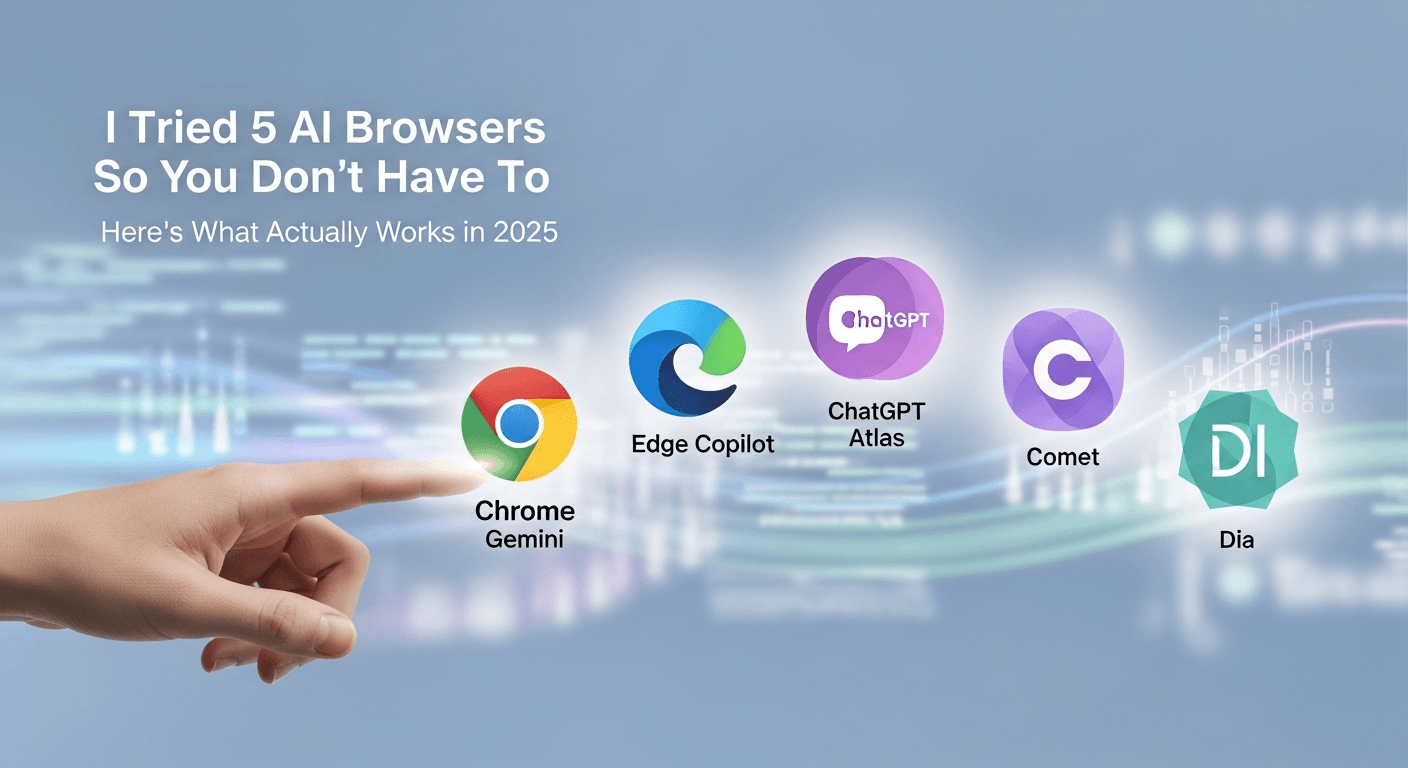
DeepMind’s Next Move: Scaling AI Reasoning to Rival OpenAI
DeepMind’s Next Move: Scaling AI Reasoning to Rival OpenAI
August 23, 2025
TL;DR: Reports suggest Google DeepMind is sharpening its focus on scalable AI reasoning—methods that improve as you add data, compute, and feedback. That aligns with DeepMind’s long track record (AlphaGo, AlphaDev) and Google’s Gemini platform. OpenAI’s o1 “reasoning models” and Anthropic’s RLAIF show the broader race is about scaling not just model size, but the quality and quantity of thought, supervision, and test-time compute.
WinBuzzer reports that Google DeepMind is challenging OpenAI with a renewed push into scalable AI reasoning. That headline fits a broader trend: the leading labs are shifting from simply making larger models to making models that can reason better as you scale data, feedback, and test-time computation. Here’s what that actually means, how DeepMind is positioned, and what to watch next.
What “scalable reasoning” really means
In 2023–2025, “reasoning” moved from buzzword to roadmap. Instead of only training bigger models, labs are scaling:
- Training-time signals: reward and supervision that target the steps of reasoning, not just final answers.
- Test-time compute: investing more inference-time thinking via chain-of-thought, tool use, and search.
- Context and memory: longer inputs (and external tools) so models can integrate more evidence before deciding.
Training-time scaling: better feedback, not just more data
OpenAI’s o1 series explicitly targets reasoning by training models to reason step by step and by rewarding intermediate correctness, not only outcomes. Anthropic has shown that reinforcement learning from AI feedback (RLAIF) can replace much of costly human labeling, making it practical to scale supervision signals as models improve. Together, these strands suggest the frontier is shifting from scaling labels to scaling good labels—process-aware, plentiful, and increasingly automated.
Test-time scaling: spend more compute per problem
We’ve learned that letting models “think” longer often boosts accuracy. Chain-of-thought prompting and structured search approaches (e.g., exploring solution branches before committing) reliably improve performance on math, code, and logic tasks, especially when paired with verification or self-consistency checks. This is reasoning that scales with inference-time compute, not just parameter count.
DeepMind’s playbook: search, self-play, and algorithmic discovery
DeepMind has repeatedly shown that search and self-play scale reasoning:
- AlphaGo/AlphaZero: Monte Carlo tree search plus self-play RL cracked professional Go and mastered multiple board games without human data, illustrating that reasoning quality can scale with compute and search depth.
- AlphaTensor and AlphaDev: using reinforcement learning to discover better algorithms (for matrix multiplication and sorting) demonstrated that structured exploration can uncover non-obvious solutions—arguably a form of scalable, verifiable reasoning.
The lesson: when you can formalize goals and verification, search-based methods and RL can turn compute into better reasoning. DeepMind and Google have been steadily bringing these ideas closer to language models and agents, where verification is trickier but increasingly tractable with better supervision and tools.
Gemini’s long context as a platform for reasoning
Google’s Gemini 1.5 introduced ultra-long context windows (hundreds of thousands to a million tokens) across text, code, audio, and video. Long context matters for reasoning because it lets models marshal evidence, keep multi-step plans explicit, and integrate retrieval and tool outputs without losing track. As DeepMind aims to scale reasoning, Gemini’s substrate—multimodality, long context, and tool use—provides the scaffolding to execute more compute-heavy, verifiable thought processes at inference time.
OpenAI’s counter: o1 and process-aware supervision
OpenAI’s o1 models center on improved reasoning by training for multi-step deliberation and by allocating more test-time compute. In parallel, process supervision research has shown that rewarding intermediate steps can reduce reward hacking and improve reliability on math and logic. While methodologies differ, OpenAI’s direction confirms the same thesis: the next frontier is scaling the quality of thinking, not just the quantity of parameters.
Why this is a real challenge—not just a press-release duel
- Convergence of methods: Search, RL, and process supervision are migrating into LLM training and inference. DeepMind’s historic strengths in search/RL meet OpenAI’s strengths in LLM optimization and evaluation.
- Verifiability: Reasoning that produces checkable steps (proofs, test suites, code passes, tool traces) is easier to scale safely—an axis where DeepMind’s algorithmic work is directly relevant.
- Economics of supervision: RLAIF-like methods could unlock orders-of-magnitude more feedback than human labels alone, accelerating progress for whichever lab operationalizes them best.
Bottom line: “Scalable reasoning” is not a single model; it’s an engineering pattern—combine richer supervision, deliberate test-time compute, long context, and verifiable subgoals. DeepMind has been building those muscles for a decade; OpenAI is hardening them in LLMs. The competition will likely hinge on who stitches these elements together most coherently for real-world tasks.
What to watch next
- Benchmarks that stress verification: math proofs, formal code tests, and agent tasks with measurable subgoals.
- Inference policies: when models choose to “think longer,” call tools, or branch-and-prune—ideally learned, not hand-tuned.
- Supervision at scale: broader adoption of AI-generated feedback and process rewards; hybrid human+AI review for safety-critical steps.
- Systems integration: long-context orchestration across modalities and documents without losing factual reliability.
If DeepMind can bring AlphaGo-style search discipline and AlphaDev-style verifiability into Gemini-era language agents, it poses a direct, substantive challenge to OpenAI’s o1-style models. Either way, users win: more robust planning, better math and code, and clearer, checkable reasoning.
Sources
- WinBuzzer: Google DeepMind Challenges OpenAI with Scalable AI Reasoning
- OpenAI. Introducing OpenAI o1 (2024).
- Google. Gemini 1.5: Long-context multimodal models (2024).
- Silver et al. Mastering the game of Go with deep neural networks and tree search. Nature (2016).
- Fawzi et al. Discovering faster sorting algorithms using reinforcement learning (AlphaDev). Nature (2023).
- Anthropic. Reinforcement Learning from AI Feedback (RLAIF) (2023).
Thank You for Reading this Blog and See You Soon! 🙏 👋
Let's connect 🚀
Latest Insights
Deep dives into AI, Engineering, and the Future of Tech.

I Tried 5 AI Browsers So You Don’t Have To: Here’s What Actually Works in 2025
I explored 5 AI browsers—Chrome Gemini, Edge Copilot, ChatGPT Atlas, Comet, and Dia—to find out what works. Here are insights, advantages, and safety recommendations.
Read Article


